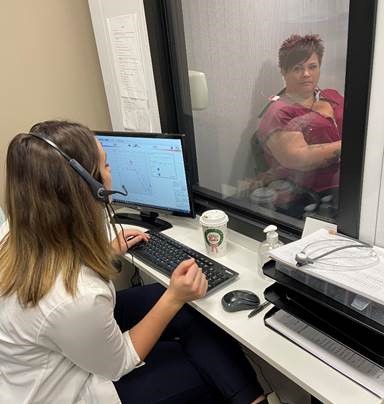Hearing health has a broader impact on overall physical and mental health than most people realize. Speech and Hearing Month in Canada helps educate the public on hearing health and risks untreated hearing loss has on wellness.
Statistics Canada puts 50 per cent of the population over age 50 as having measurable hearing loss or tinnitus. Hearing loss can affect people of all ages and has a number of causes.
“Age-related hearing loss seems to be the cause most recognized by people,” explained Elliot Tiede, Hearing Instrument Specialist with Hear Well Be Well. “That might explain why so many people think hearing aids are only for old people.
“There are many other causes which is why hearing loss doesn’t affect only our senior population,” he added. “Hearing loss can be caused by illness, loud noise damage, genetics or even medications. There are more than 200 over-the-counter and prescription ototoxic medications that contribute to hearing loss.”
Effect on relationships
Hearing loss has a been known to affect relationships, especially intimate partner relationships. The person with hearing loss may experience isolation. Finding it difficult to communicate in social settings can make the person with hearing loss refuse to go out. Their partner is also impacted with feelings of frustration, not only from constantly being asked to repeat themselves but also from missing social activities because their partner does not want to attend. Research has shown untreated hearing loss and the stresses it puts on a relationship as an underlying cause of a measurable percentage of divorces.
Dementia
Untreated hearing loss has been strongly linked to an increased risk of developing dementia. It now stands as the number one modifiable risk for developing dementia. Research at Johns Hopkins University School of Medicine in the US found untreated hearing loss increases the risk of developing dementia by up to five times. Even mild hearing loss can double the risk of developing dementia.
“Research is still trying to pinpoint exactly why untreated hearing loss has such a profound impact on dementia risk,” said John Tiede, Hearing Instrument Specialist and co-CEO with his wife, Kathleen, of Hear Well Be Well Hearing Clinics. “The current thinking is the puzzle-solving part of the brain gets overused trying to figure out what people are saying. That overuse causes it to essentially burnout.
“Combine that with the speech interpretation part of the brain not getting as much use which can cause atrophy and you get two parts of the brain susceptible to damage and dysfunction.”
Increased risk of serious falls
More research from Johns Hopkins University School of Medicine found even people with mild hearing loss are at a three-fold greater risk of having a history of falling. For every additional 10 decibels of hearing loss, the risk of fall increases 1.4 times. The findings are the same even when accounting for age, sex, race and cardiovascular function.
It has been suggested people who cannot hear well might be missing an awareness of their environment making trips and falls more likely. It has also been theorized that people with hearing loss experience more cognitive load so the brain gets overwhelmed and overloaded. Walking requires a lot of brain power; with hearing loss there may be less resources available to the brain to manage balance and movement.
Annual hearing tests
Even for those who haven’t exhibited signs of hearing loss, an annual hearing test is recommended.
“It’s important to have a baseline measurement of your hearing,” stated Kathleen Tiede. “It’s also important to catch any change in your hearing as soon as possible. While hearing aids can’t stop the deterioration of your hearing, using them slows down any further decline.”
Hearing tests are painless and are performed at no charge at Hear Well Be Well.
